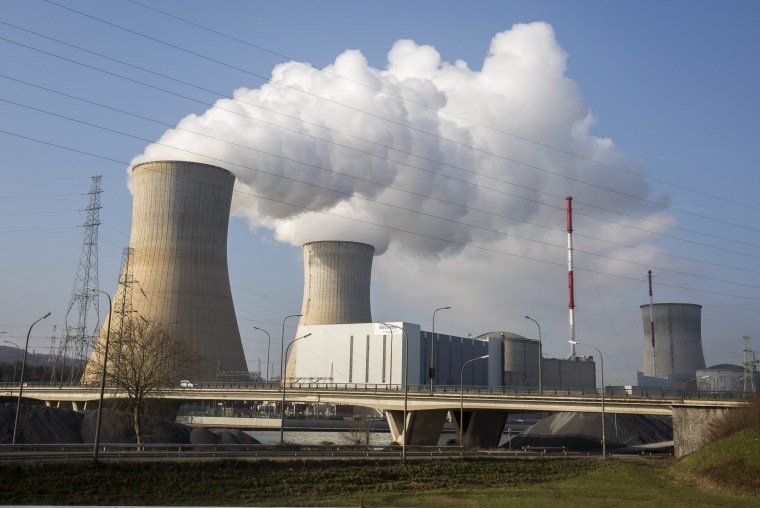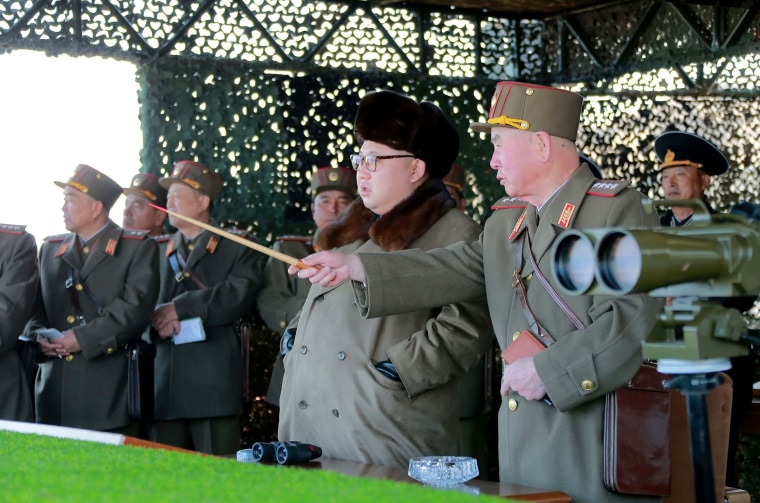Imagine the Brussels attackers, who killed dozens at an airport and train station, armed with some type of nuclear material.
That nightmare scenario is at the crux of concerns at the biennial Nuclear Security Summit, a gathering of more than 50 world leaders meeting over the next two days in Washington D.C. The meeting — and the quest to keep terrorists from getting the materials for a dirty bomb — is especially timely since investigators say some of the suspects in the Brussels’ attacks videotaped the comings and goings of a top Belgian nuclear scientist.

U.S. officials say they’ve worked with the Belgians over the years to reduce the amount of nuclear material at the facility where the scientist works.
“And certainly the video footage is of concern and suggests there is at least some interest by ISIL,” said Laura Holgate, one of the president’s top advisers on weapons of mass destruction and arms control.
She added that while there’s no information that a broader plot exists, the threat of terrorists trying to launch an improvised attack with a nuclear device has long been a concern of security officials worldwide.
U.S. officials estimate there’s some 2000 metric tons of material being housed in civilian and military programs around the world that could be used to craft nuclear weapons.
Related: Terrorism and North Korea Dominate Nuclear Talks in Washington
That fact, coupled with the recent terrorist attacks and the danger of more is hung heavily over the summit as it got underway on Thursday.
“Given the continued threat posed by organizations such as the terrorist group we call ISIL, or ISIS, we’ll also join allies and partners in reviewing our counterterrorism efforts, to prevent the world’s most dangerous networks from obtaining the world’s most dangerous weapons,” the president wrote in an opinion piece for the Washington Post.
Because of the Brussels attacks and a new sense of urgency, President Obama will preside over a session that focuses on the effort to “degrade and destroy,” the Islamic State. Most of the nations attending the summit also are part of the 60 member coalition that the U.S. has assembled to fight ISIS. White House officials say that various members need to step up their contributions to the coalition's counterterroism operations.
Related: Brussels Attacks
U.S. officials are especially focused on intelligence gathering and sharing and are determined to stop the flow of foreign fighters moving in and out of ISIS-controlled territory to Europe.
The idea of a nuclear security summit all started with a speech in Prague in 2009 in which President Obama envisioned a world without nuclear weapons and made securing nuclear material and atomic weapons worldwide one of his highest priorities.
Still, the talks faced a huge setback before even getting underway.
Russia, which along with the U.S., holds 90 percent of the world’s nuclear weapons, has refused to attend. The Russians apparently are unwilling to participate during a period of strained relations with the U.S. on a number of issues like Ukraine and Syria.
Related: Fact Sheet: Who Has Nuclear Weapons, And How Many Do They Have?
Today administration officials called that "counterproductive."
The high level gathering is also happening as controversy swirls around Republican presidential frontrunner Donald Trump’s recent comments about nuclear weapons.
“I am not- I am not taking my cards off the table,” Trump said responding to questions about whether he would use nuclear weapons in Europe or the Middle East.
And while the summit is aimed at stopping the proliferation of atomic weapons, Trump added he would be okay with U.S. allies like South Korea, Japan and Saudi Arabia having nuclear weapons to protect themselves.
Ben Rhodes, a top White House national security advisor said such a plan would be “catastrophic,” and “flies in the face of decades of bipartisan security cooperation.”
On Thursday, the focus was initially on another nuclear threat: North Korea.
Its reclusive leader, Kim Jong Un, again defied the international community in January testing what he claimed was a hydrogen bomb. He then followed that with tests of a ballistic missile. The United Nations Security Council imposed more sanctions on North Korea.
“We are united in our efforts to deter and defend against North Korean provocations,” Obama said at the summit after his meeting with the leaders of Japan and South Korea, two of America’s most important allies in the effort to contain North Korea.

Later in the day, Obama will hold talks with China’s President Xi Jinping, the nation with perhaps the most influence with North Korea.
In previewing the summit, White House officials said past gatherings have produced “over 260 commitments,” that have enhanced nuclear security. The list of steps taken according to the White House includes, removing nuclear material from countries, ratifying treaties related to nuclear security, converting reactors, and strengthening regulations.
”It’s harder than ever before,” for terrorists to acquire nuclear materials, Rhodes said.
However critics point out there are still no legally binding overarching international treaties or agreements on how nations are required to deal with nuclear material.
The administration also cites the nuclear deal with Iran and a 2010 arms reduction treaty with Russia as major steps toward non-proliferation.
“As the only nation to ever use nuclear weapons the United States should continue to lead the way in eliminating them,” Obama wrote in a Washington Post opinion piece.
